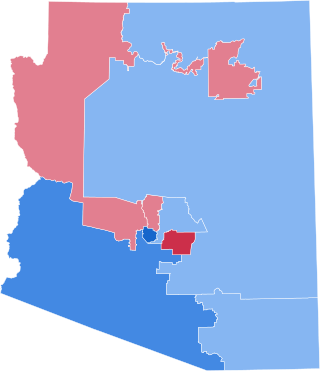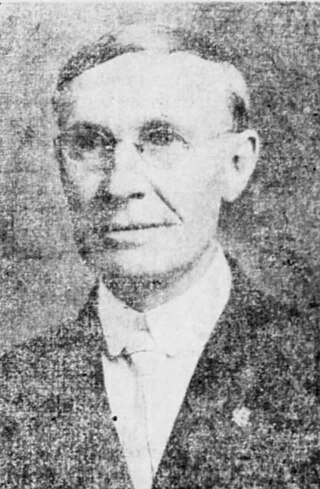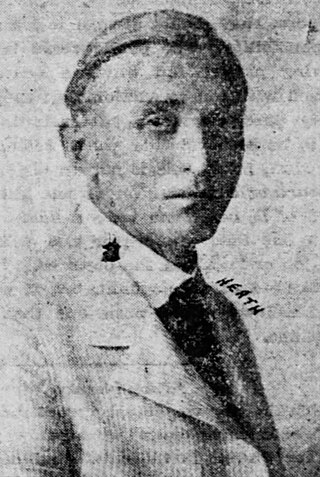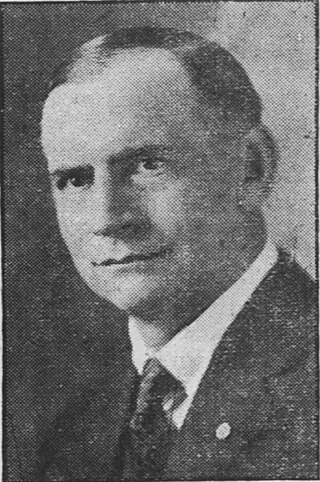
Matthew James Salmon is an American politician who served as a U.S. representative from Arizona from 1995 to 2001 and again from 2013 until 2017. A member of the Republican Party, he retired from office after representing Arizona's 5th congressional district. The district is based in Mesa and includes most of the East Valley; he previously represented Arizona's 1st congressional district. In 2002, he lost by less than 1% to Janet Napolitano in a highly competitive gubernatorial race. He regained a congressional seat in the 2012 election.

The 2008 congressional elections in Arizona were held on November 4, 2008, to determine who would represent the state of Arizona in the United States House of Representatives, coinciding with the presidential election. Representatives are elected for two-year terms; those elected would serve in the 111th Congress from January 4, 2009, until January 3, 2011.

Paul D. Boyer is an American politician and a former Republican member of the Arizona State Senate representing District 20 from 2019 to 2023. He previously served in the Arizona House of Representatives from 2013 to 2019, including serving as the Chair of the Arizona House Education Committee.

John C. Giles is an American politician serving as the 40th mayor of Mesa, Arizona. A Republican, Giles previously served as a member of the Mesa City Council from 1996 to 2000. Giles was elected mayor of Mesa in a 2014 special election following the resignation of Mayor Scott Smith.

The 2022 Arizona elections were held in the state of Arizona on November 8, 2022, coinciding with the nationwide general election. All six executive offices were up for election, as well as a U.S. Senate seat, all of the state's U.S. House of Representatives seats, and the state legislature.

William Prescott Sims ) was a politician and dentist from Arizona. He served in Arizona State Senate in the 1st, 2nd, and 5th - 7th State Legislatures. He served as the President of the Senate during the 2nd Legislature.

H. A. Davis (1879-1946) was an American politician from Arizona, who served as a senator in the 1st Arizona State Legislature. He was also a newspaperman and owned a printing business.

Orley S. Stapley was a politician from Arizona who served in the Arizona state senate during the 2nd Arizona State Legislature. He began what would become the largest mercantile business in Arizona, and he was the largest dealer of International Harvester products in the United States.

Sam F. Webb was a politician from Arizona who served in the Arizona legislature for several terms, both when it was a territory and after it became a state. He served in the state house of representatives during the 12th, 14th, and 25th Arizona Territorial Legislatures, and in the upper house of the legislature, called the council, during the 15th Arizona Territorial Legislature. During the 14th and 25th legislatures he served as Speaker. He also served in the Arizona State Senate during the 2nd Arizona State Legislature. He held several other governmental positions over the years, including customs inspector for Arizona, Maricopa County treasurer, as well as serving in both the Maricopa County's assessor's and recorder's offices, and a short stint as a deputy U.S. Marshall. He also operated several successful mining operations in both Arizona and Sonora, Mexico, was both a rancher and farmer, and was the editor of several papers in Tucson and Phoenix.
William D. Claypool was an Arizona politician who served several terms in the Arizona State Senate during the 1910s and 1920s.

Ernest R. Hall was an Arizona politician who served a single term in the Arizona State Senate during the 3rd Arizona State Legislature. He ran several other times for the state legislature, mostly for the State Senate, but once for the State House of Representatives. He also ran three times for Arizona Secretary of State, winning in the 1920 election. Other offices he held were justice of the peace and postmaster, both in the Salome, Arizona area. He was a combat veteran of World War I, and was a very successful farmer in Maricopa County for several decades.

Henry Bannister Wilkinson was an American lawyer and politician who served three consecutive terms in the Arizona State Senate from 1918 to 1922, serving as the President of the Senate in his third term, during the 5th Arizona State Legislature. He unsuccessfully ran for several other offices, including in 1933, when Wilkinson lost in the first special election held in Arizona, for Arizona's sole congressional seat. He lost in a landslide to Democrat Isabella Greenway, who garnered 73% of the vote to become the first woman from Arizona to go to Congress. He was instrumental in bringing main line railroad service to Phoenix, Arizona; was one of the founders of what is known today as Banner - University Medical Center Phoenix; was a member of the Arizona State Bar for over fifty years, serving as its president one year; and was very active in the movement to improve the roads in Arizona.

Charles Hays Rutherford was an American lawyer and politician from Arizona who served in the Arizona State Senate from 1917 through 1918, during the 3rd Arizona State Legislature. He also served during the 6th Arizona State Legislature. He served in the Army Reserve, first in the JAG corps, then in the Specialist Reserve Corps, eventually attaining the rank of Colonel. From 1930 until his death in 1950 he served as a civilian aide to the Secretary of War. He practiced law, first in Indiana early in his career, and then in Arizona, until he was disbarred by the Arizona Supreme Court in 1949.
David C. O'Neil was an American politician from Arizona. He served a single term in the Arizona State House of Representatives during the 3rd Arizona State Legislature, and a single term in the Arizona State Senate during the 4th Arizona State Legislature. He served 13 years on the Arizona State Tax Commission, 6 of them as chairman. He was appointed in 1934 to serve the last year of an unexpired term, then was re-elected twice, in 1934 and 1940. Early in his career he worked in the hospitality and transportation industries.

Charles C. Green was an American rancher and politician from Arizona. He served a single term in the Arizona House of Representatives during the 3rd Arizona State Legislature, followed by a single term in the Arizona State Senate during the 4th Arizona State Legislature.
Joseph H. Lines was an American politician from Arizona. He served a single term in the Arizona State Senate during the 5th Arizona State Legislature, holding the single seat from Graham County.
Dan P. Jones was an American politician from Arizona. He served a single term in the Arizona State Senate during the 8th Arizona State Legislature, holding one of the two seats from Maricopa County. Prior to that he had served three terms in the Arizona House of Representatives, during the 1st, 5th, and 6th Arizona State Legislatures. During the 6th Legislature, he was elected Speaker of the House. He was also very involved in the education system in Mesa, serving as its board president, as well as in the Church of Jesus Christ of Latter-day Saints.

Harlow Akers (October 28, 1898 - December 1, 1945) was an American politician from Arizona. He served a single term in the Arizona State Senate during the 8th Arizona State Legislature, holding one of the two seats from Maricopa County. In 1932 he ran for the Democrat nomination for the U. S. Senate, but lost to incumbent Carl Hayden.

William C. Joyner was an American politician from Arizona. He served a single term in the Arizona State Senate during the 8th Arizona State Legislature, holding one of the two seats from Pima County. He also served as the state game warden, and was responsible for the construction of the Hunt Bass Hatchery House.

Joe C. Haldiman was an American politician from Arizona. He served three terms in the Arizona State Senate during the 10th, 12th, and 15th Arizona State Legislatures, holding one of the two seats from Maricopa County.
















